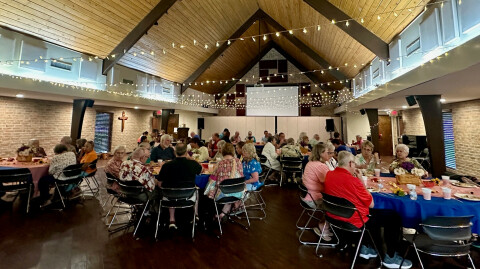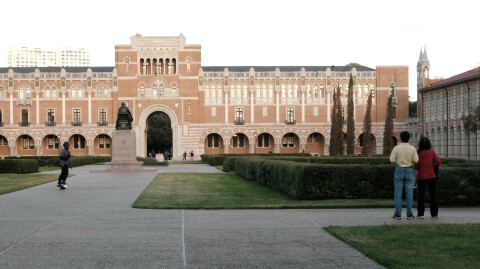TLDR: If you haven’t already, I highly recommend reading Rev. Brad Sullivan’s book, For the Hurt, the Blessed, and the Damned.
Recently, I read For the Hurt, the Blessed, and the Damned by the Rev. Brad Sullivan. Brad grew up at St. Dunstan’s, making this a special connection. He also went to seminary with my husband. After reading the book, I spoke with him and he gave me permission to post this blog.
This is a book for people who have been wounded by religion and are struggling to put their faith back together. There is a powerful section on how to communicate with people with different perspectives.[1] His ability to connect with those who find themselves excluded or wounded by Christians is an incredible gift to the church and the world. So often, Christians try to convert before hearing someone’s story. The author chooses to embody Christ the Good Shepherd by anointing people with his listening. The evangelism displayed is one of compassion rather than being stuck with a traditional model: share a conversion event, emphasize God’s sovereignty, and pray.
The book is broken into three parts, with the second half being faith stories from other religions. Overall, these stories invite more people into meaningful discussions of faith. I have recommended this book to those who are struggling with unbelief on their Christian journey. It is important that all Christians are familiar with other religious beliefs.[2] It is our place to show our faith through word and deed. Sullivan shows a remarkable openness and compassion to other viewpoints.
A prevalent theme throughout the book is the idea of God’s grace. For example, in Chapter two, he refers to Mark 9:24, which takes place soon after the transfiguration. A father has a son with epilepsy who is seeking healing. The father recognizes that he believes and needs to deepen his faith, saying, “I believe; help my unbelief!”
Jesus relies on the power of prayer to heal from the transfiguration.[3] Jesus does not chastise the father for his unbelief. Neither should we (a point made by Sullivan in his book). As Episcopalians, our common faith can sustain us in times of belief and unbelief. Maybe someone in the pew next to us who is having an easier time believing in parts of the creed, or any other part of our faith, the person next to us carries our belief for us. This is why in the Nicene Creed someone says, “we believe” instead of using the “I believe” in the Apostles Creed.[4]
Sullivan continues his point, saying, “The story of scripture is then a story of God healing humanity through continually bringing us unity to God and each other.”[5] Even in destruction accounted for in the Hebrew Scriptures, it’s important to remember that God’s judgment is preparing the way for grace and recreation. Sullivan adds a devotion known as an examen, where participants can focus prayers that reveal God’s work in their lives.
The Bible reveals a God who is always striving for restoration to creation. From the Garden of Eden to Noah’s Ark, Abraham and Sarah, and King David remind us that God wants a right relationship with creation. Yet as hard as God strives to be in a relationship, it requires both parties. I know people who do not believe in God, nor do they have any interest in such a relationship. Jesus tells many stories about the importance of the choices we make sheep or goats, foolish or wise bridesmaids (Matthew 25), wedding guests and those thrown out (Matthew 22), and so on. While I have plenty of faith that God can change all of our hearts, I do wonder how much our personal freedom to reject perfect love is in play. Episcopal priest and author Robert Capon who said, “Both heaven and hell are populated entirely and only by forgiven sinners. Hell is just a courtesy for those who insist they want no part of forgiveness.”
When examining Matthew 25:31-46,[6] Sullivan begins to use it as a slippery slope toward work’s righteousness; he is correct. Sometimes I have had friends deal with salvation in a way that reminds me of a middle school cafeteria: we are sorted based on our abilities in the eyes of the decider, perhaps we will receive a spot at the table if we do what that person believes is good.[7] Thankfully, God is not a middle school queen bee, it is as he says, “trust in Jesus and in the goodness of God, and seek to follow Jesus’ way.”[8] I think an addition to this idea is as follows: Jesus calls people to move toward God’s justice in order that their experience of God might be deeper. The Greek word translated in Matthew 25:46 as “righteousness” is closely related to the Greek word for justice. Some of my closest friends are not practicing Christians, yet most of their lives reflect an attitude of righteousness. They look at the world and try to make it better, they work to ensure justice.
One of the pieces I appreciate about the conclusions is the idea that God wishes for humanity to be restored to God: someone sees the pain that they have caused at any point and from there becomes repentant. I have not found as much scriptural evidence for this point, although it fits into the concept of God being merciful, loving, and just.
This is a book that I recommend, full of meaningful accounts, new ideas, and perspectives on familiar biblical passages. It was a relatively quick read that enhanced my life. My prayer is that you read it as well.
For His Sake,
Mtr. Beth Anne Nelson +
[1] Sullivan, B. (2022) .For the Hurt, the Blessed, and the Damned. p.11
[2] Sullivan, B. (2022) .For the Hurt, the Blessed, and the Damned. pp.139-166.
[3] For more on this idea of Jesus using the power of prayer see Wright, N.T. (2001). Mark for Everyone. Louisville: Westminster John Knox Press
[4] Sullivan, B. (2022) .For the Hurt, the Blessed, and the Damned. p.124
[5] Sullivan, B. (2022) .For the Hurt, the Blessed, and the Damned. p.75
[6] Sullivan, B. (2022) .For the Hurt, the Blessed, and the Damned. p.23
[7] Middle school is rough - I encourage you to be kind to a middle schooler today.
[8] P.19





